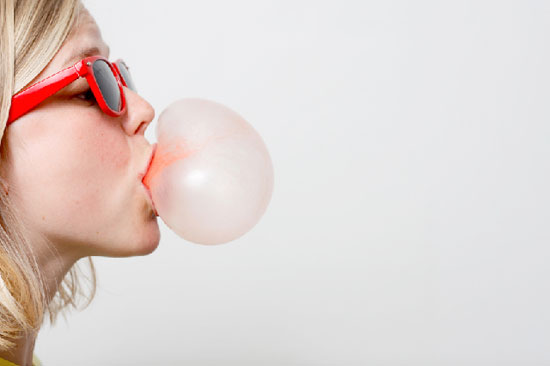Chewing gum? Aspartame, rubber and plastic
Millions of people use gum daily to freshen their breath. But many conventional chewing gums are so riddled with toxins that, if you knew what was really in them, you might think twice before ever purchasing another pack.

Historically, chewing gum was used in a medicinal form rather than as a treat in that the gum base was derived from natural tree resins and the flavors extracted from natural herbs and spices. Today, it’s a completely different story as many popular chewing gum brands are loaded with plastics, rubbers and synthetic sweetening components.
Several years ago, the Discovery Channel aired a segment on modern chewing gums that tells at least part of the story. This video clip from an episode of “How It’s Made” reveals that today’s bubble and chewing gums are not what they once were.
“Traditionally, the (gum) base came from tree resin. Today, it’s synthetic, made of plastics and rubbers.”
That’s right: plastics and rubbers. Plastics, as many of our readers will know, are derived from petroleum (oil). Many of them are linked to causing hormone disruption and cancer. It’s the last thing children or adults should be chewing on, and yet this is what nearly all of the big gum manufacturers use today.
Synthetic chewing gum bases contain PVC-like Carpenter’s glue, investigation reveals
The William Wrigley Jr. Company, which is one of the largest chewing gum manufacturers in the world, admits right on its website that it uses “synthetic gum base materials” in its chewing gums. But it doesn’t outline precisely what these materials are, and here’s why.
An investigation conducted by The Health Wyze Report revealed that many industrial gum bases contain toxic ingredients like elastomers, resins (synthetic), plasticizers and various fillers. These ingredients are typically concealed as “trade secrets,” but the investigation did uncover what some of them are.
What The Health Wyze Report uncovered about at least one gum base manufacturer, the China-based Wuxi Yueda Gum Base Manufacture Co., Ltd., is that it uses polyvinyl acetates, which also goes by the name of “Carpenter’s glue.”
Other synthetic gum base additives include glycerol ester of rosin, which is used in varnishes, as well as cancer-causing talc and petroleum-derived paraffin wax.
Then there’s the sweetening aspect, as most gums sold in the U.S. contain the controversial sweetening additive aspartame. Either that or they’re loaded with genetically-modified (GM) corn syrup and/or beet sugar, both of which are also toxic to human health.
“Chewing gum is easily one of the most toxic products available, and it is difficult to ever know exactly what it contains due to vague terms such as ‘gum base’ and ‘artificial flavors,’” explains The Health Wyze Report. “These reflect trade secrets, and the ingredients probably are made of hundreds of other ingredients that they are unwilling to disclose. Manufacturers maintain that customers have no right to know.”
So what can you do to avoid all this? Stick with natural chewing gums like those made by Simply, Spry and Glee, all of which use natural gum bases and no synthetic sweetening agents. Each of these brands is also non-GMO, with Glee Gum being Non-GMO Project Verified.
yogaesoteric
June 13, 2019
Also available in:
 Français
Français
